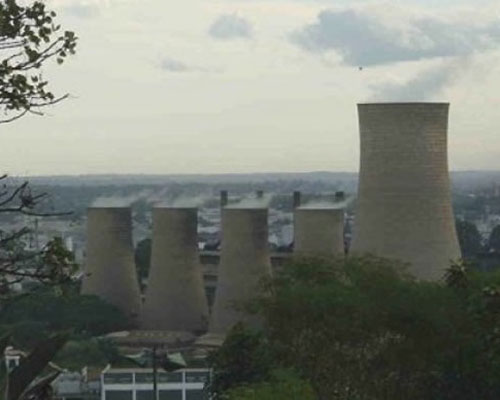
PUNGWE B’s 15,25-megawatt (MW) hydro-power station is expected to be fully operational by next year in a move that will increase power output and ease power shortages, an official has said.
VICTORIA MTOMBA BUSINESS REPORTER
Speaking at a breakfast meeting on Friday, Zimbabwe Energy Regulatory Authority (Zera) chief executive officer Gloria Magombo said 2,75MW of power for Pungwe B was commissioned recently. Pungwe B, a mini hydro-power station, is owned by Nyangani Renewable Energy.
“Commissioning of 2,75 megawatts of 15,25 megawatts of Pungwe started last month and the rest will be done early next year,” she said.
The country has four mini independent power producers (IPP)hydro-power stations that include Pungwe (2,7MW), Nyamingura (1,1MW) and Duru (2,2MW), and Border Timbers that produces half a megawatt.
The biggest IPP include Sengwa, Lusulu, Shangano, Gwayi, Essar and Gairezi.
Most of these big IPPs are still at prefeasibility level.
“Gwayi and Shangano have moved from prefeasibility study levels. Shangano has engaged a financial adviser. A lot of discussion is there for Sengwa, they are courting investors and they are still at negotiation stage and Development Bank of South Africa will help them package and product,” she said.
- Chamisa under fire over US$120K donation
- Mavhunga puts DeMbare into Chibuku quarterfinals
- Pension funds bet on Cabora Bassa oilfields
- Councils defy govt fire tender directive
Keep Reading
She said the country has twelve IPPs and one of the producers has lost its licence as it was not progressing.
“When we issue IPPs they come with the product implementation plan. Prospective IPP indicate when the project milestones will be met,” she said.
Magombo said in the past there was no appetite from foreign investors to invest in IPPs as the projects require huge amounts of capital. For instance the Sengwa power project requires $2 billion which is a huge amount of money.
The power sector produces 1 200 MW against a demand of 2000MW. The sector has been facing many challenges that include lack of investment and capital and old equipment.











